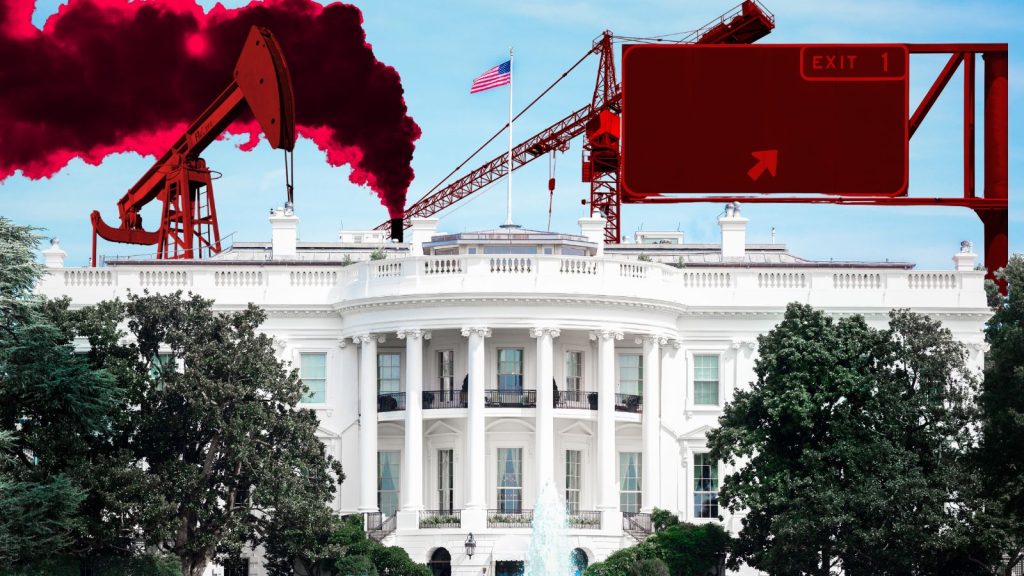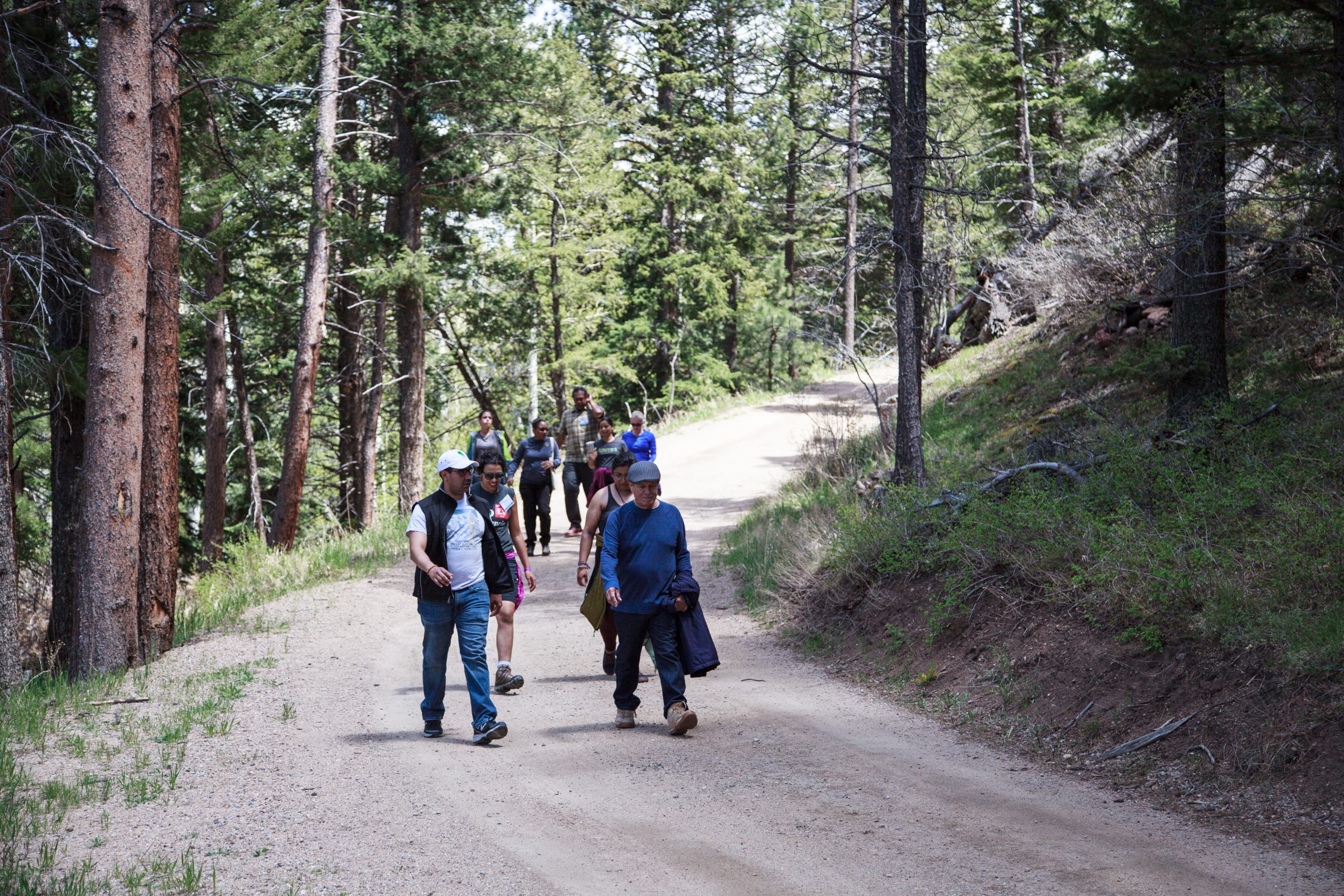
Imagine a pipeline being built near your neighborhood. You start noticing more trucks, odd smells in the air, and your child’s asthma flaring up again. You ask questions, but no one has answers. That feeling of being ignored is all too common in many Latino communities. But there’s a law meant to prevent that.
It’s called the National Environmental Policy Act, or NEPA, and while it may not make headlines, it is one of the most powerful tools communities have to protect their health, environment, and right to be heard.
What is NEPA?
NEPA was signed into law in 1970 to ensure that the federal government considers the environmental and public health consequences of its actions before approving or funding major projects. These include highways, pipelines, ports, and other federally supported infrastructure.
NEPA rests on three core principles: transparency, public participation, y accountability. Agencies must study and publicly share the environmental impacts of their proposals and consider community feedback before making final decisions. NEPA doesn’t just ask what’s being built; it asks who it will impact and how.
For communities already burdened by pollution and climate injustice, NEPA is not just a policy; it’s a line of defense.

A Tool for Frontline Communities
Many Latino neighborhoods are located near highways, industrial sites, or fossil fuel facilities due to decades of discriminatory planning and disinvestment. These communities experience higher asthma rates, poorer air quality, and greater climate risks, and yet are often excluded from the decision-making process.
NEPA helps change that. When a federal agency proposes a project that could significantly impact the environment, it must conduct an Environmental Impact Statement (EIS) o Environmental Assessment (EA). These documents explore the project’s consequences and alternatives, and they must be released for public review and input. Agencies are already required to publicly discuss the evaluation process and launch a comment period for the impacted community to submit comments, concerns, and questions.
This process gives frontline communities the chance to raise concerns, ask for changes, and even stop or reshape harmful projects. And when agencies don’t follow the law, NEPA allows communities to challenge them in court.

Transparency and Legal Power
One of NEPA’s greatest strengths is its requirement for openness. Agencies must share their findings with the public, and communities must be given meaningful opportunities to respond. When this process is rushed or skipped, NEPA gives people the legal right to push back.
This legal recourse is critical. Courts have repeatedly stopped or delayed projects when agencies failed to properly evaluate environmental risks or include public input. For many frontline communities, NEPA is the only mechanism that ensures their voices can lead to action.
Current Threats and Actions in 2025
In early 2025, Executive Order 14154 directed the White House Council on Environmental Quality (CEQ) to repeal all binding NEPA regulations. On February 25, CEQ issued an interim final rule that removed decades of regulatory safeguards, effective April 11, and instructed agencies to overhaul their procedures by February 2026.Since then, federal agencies have moved quickly.
El Department of Energy eliminated its NEPA regulations and shifted to internal guidance. The Federal Energy Regulatory Commission (FERC) issued a final rule effective August 2025, replacing CEQ-based standards with its own internal review procedures.

Other agencies, like the Department of Transportation, USDA, the Army Corps, and the Department of Defense, are also rescinding NEPA regulations and replacing them with informal manuals, checklists, or interim policies.
This patchwork approach threatens to erode consistent safeguards for climate, health, and public participation. Environmental justice groups have raised concerns that these changes create confusion and sidestep meaningful community input, especially for projects that cross agency jurisdictions.
The recent Supreme Court ruling in Seven County Infrastructure Coalition v. Eagle County also narrowed the scope of NEPA enforcement by limiting judicial review, making it even harder for communities to challenge harmful projects in court.
Why the attacks on NEPA?
These attacks are being disguised as efforts to “cut red tape,” boost U.S. energy independence, and streamline infrastructure—but the reality tells a different story. Gutting NEPA opens the door for corporations to fast-track polluting projects that maximize profits while sidelining frontline communities. By limiting legal challenges, eliminating or shortening public comment periods, and restricting community input, they’re trying to silence opposition and strip away transparency. This is not about efficiency; it’s about economic greed, anti-democratic decision-making, and removing one of the few tools communities have to defend their health, land, and future.
Our Call to Action
At GreenLatinos, we believe NEPA must be strengthened and protected. This means insisting on:
- Robust public engagement, with translated notices and community hearings
- Retaining climate, cumulative impact, and environmental justice analysis
- Maintaining legal accountability and judicial review for proposed projects
We urge the public to stay involved. Attend public hearings. Submit timely comments. Organize neighbors. Partner with legal and environmental justice groups. Use NEPA not just to respond to harm but to shape a more just and sustainable future.
Moving Forward
NEPA remains one of the strongest tools to fight environmental injustice and hold federal agencies accountable. It helps communities access information, demand safer alternatives, and stop harm before it happens.
This year’s sweeping changes remind us that environmental protections are never guaranteed. For Latino communities on the frontlines of pollution and climate change, NEPA is more than a policy. It is a promise that our voices matter. That our health matters. That our future is worth protecting.
Let’s make sure that promise holds, for our gente and for generations to come.

Join the Climate Justice & Clean Air Collective!
Want to take meaningful action on clean air and climate justice in Latino communities? Be part of our Collective! You’ll get updates, resources, and chances to plug into virtual and in-person events—all while building power with GreenLatinos.




